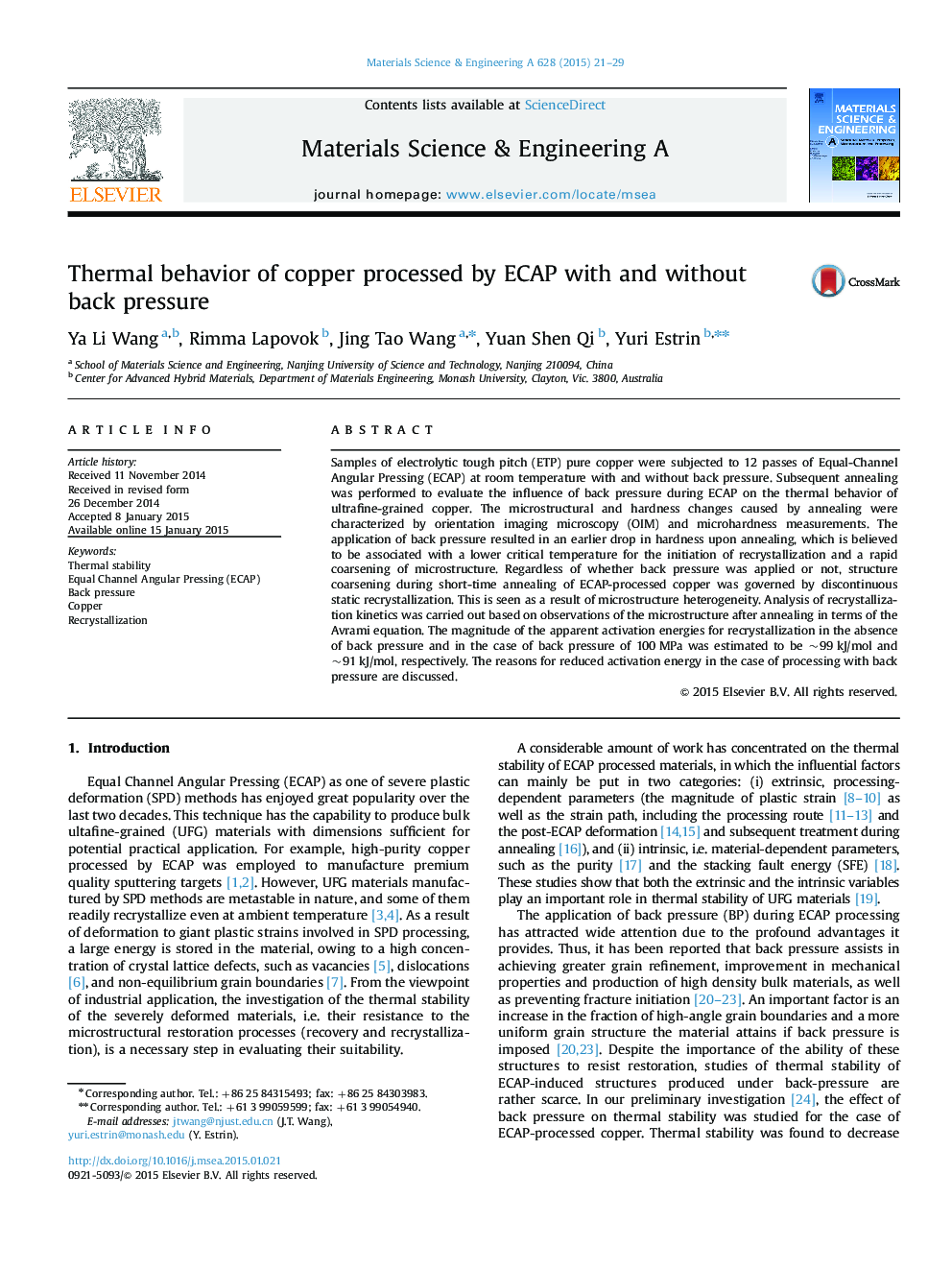| Article ID | Journal | Published Year | Pages | File Type |
|---|---|---|---|---|
| 7978251 | Materials Science and Engineering: A | 2015 | 9 Pages |
Abstract
Samples of electrolytic tough pitch (ETP) pure copper were subjected to 12 passes of Equal-Channel Angular Pressing (ECAP) at room temperature with and without back pressure. Subsequent annealing was performed to evaluate the influence of back pressure during ECAP on the thermal behavior of ultrafine-grained copper. The microstructural and hardness changes caused by annealing were characterized by orientation imaging microscopy (OIM) and microhardness measurements. The application of back pressure resulted in an earlier drop in hardness upon annealing, which is believed to be associated with a lower critical temperature for the initiation of recrystallization and a rapid coarsening of microstructure. Regardless of whether back pressure was applied or not, structure coarsening during short-time annealing of ECAP-processed copper was governed by discontinuous static recrystallization. This is seen as a result of microstructure heterogeneity. Analysis of recrystallization kinetics was carried out based on observations of the microstructure after annealing in terms of the Avrami equation. The magnitude of the apparent activation energies for recrystallization in the absence of back pressure and in the case of back pressure of 100Â MPa was estimated to be ~99Â kJ/mol and ~91Â kJ/mol, respectively. The reasons for reduced activation energy in the case of processing with back pressure are discussed.
Related Topics
Physical Sciences and Engineering
Materials Science
Materials Science (General)
Authors
Ya Li Wang, Rimma Lapovok, Jing Tao Wang, Yuan Shen Qi, Yuri Estrin,
